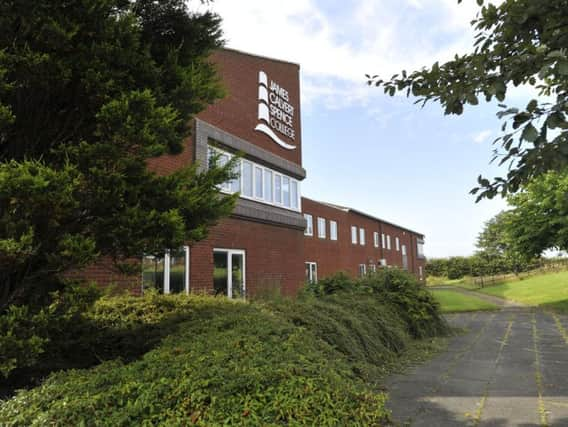Progress being made, but Amble school still requires improvement, says Ofsted


Following an Ofsted inspection in October, the town’s James Calvert Spence College (JCSC), which was previously a high school but is now for nine to 18-year-olds, has maintained its previous rating of requires improvement, meaning there is still work to do for it to become a good school.
All schools are given an overall ranking of outstanding, good, requires improvement or inadequate, as well as being scored on the same scale in four key areas.
Advertisement
Hide AdAdvertisement
Hide AdJCSC was rated as requires improvement for effectiveness of leadership and management; quality of teaching, learning and assessment; and outcomes for pupils, but was declared good for personal development, behaviour and welfare.
The report, released at the end of last week, raises concerns about the progress and outcomes of pupils and how they are challenged by teachers.
It adds that, until recently, leaders did not tackle weaknesses effectively and they in turn were not held to account robustly enough by governors.
However, there is praise for ‘exciting plans to improve the quality of the school’s curriculum’ – despite it being too early to judge the impact, staff morale being high, and leaders and governors ambitions’ to improve the school based on an accurate view of its strengths and weaknesses.
Advertisement
Hide AdAdvertisement
Hide AdThere is particular credit for the work of staff on pupils’ welfare, their behaviour and attendance, which led to the good rating in that category.
The report states: ‘The executive headteacher is leading the school in the right direction. He is building a strong team of senior leaders who share his vision to improve the school.’
The inspectors set out a number of issues that JCSC must tackle in order for the school to address two main areas for improvement.
It needs to improve the quality of teaching and learning, in all key stages, so that pupils make good progress and it must also improve the effectiveness of leadership and management, including at key stage 2 and in the sixth form.
Advertisement
Hide AdAdvertisement
Hide AdExecutive headteacher, Neil Rodgers, said: “While we are disappointed by many of the summary judgements made in the report, it celebrates many positive achievements throughout the school.
“We are pleased that much of the progress we’ve made in recent years has been rightfully recognised by the Ofsted team, which agrees that the school is moving in the right direction.
“After a rise in attainment in 2017, GCSE results went up again in 2018, and were the best the school has ever seen. A positive Progress 8 score indicates that students made better-than-average progress between key stages 2 and 4, with our most able students performing to an extremely high level yet again.
“Higher-attaining students made progress in line with their 2017 performance, a result which ranked JCSC as 10th out of all state schools in the North East for this measure.
Advertisement
Hide AdAdvertisement
Hide Ad“Attendance is improving and in line with national average, including for disadvantaged students (whose academic performance has also improved markedly over the past couple of years), and the behaviour of our students is good – the way our students behave in lessons and around the school is commended, as is the way they are cared for and supported by staff. We have much to be proud of.
“Having said that, we realise that there are still several areas in which we need to continue to demonstrate improvement – all of which had already been identified by the school leaders and are a work in progress.
“As a requires-improvement school, we look forward to the inspectors visiting us again in the near future to see the evidence they need to award us the status of being recognised by Ofsted as a good school, a status that the staff are working tirelessly to provide for our students and the wider community.”
Ben O'Connell, Local Democracy Reporting Service